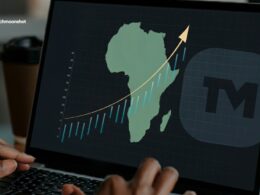In a country as vibrant and dynamic as Nigeria, the future of work is increasingly being shaped by digital skills. As technology continues to penetrate every facet of life, the demand for digital proficiency has skyrocketed, driving a fundamental transformation in Nigeria’s workforce. From coding and digital marketing to data analysis and cybersecurity, digital skills are the key to unlocking new economic opportunities, improving job readiness, and addressing critical gaps in employment across sectors.
A Rapid Shift Toward Digital Proficiency
The traditional workforce once primarily focused on manual labor and non-technical jobs, is now evolving to meet the challenges of a digital-first world. Today, the Nigerian workforce is awakening to the reality that digital skills are no longer a luxury but a necessity. A growing number of young Nigerians, particularly those in urban areas, are embracing the power of technology to transform their careers and businesses.
In sectors such as fintech, e-commerce, healthtech, and agriculture, individuals with digital expertise are now the driving force behind innovation. With platforms like Andela and Decagon, Nigerian tech talent is being trained and deployed to global markets, helping bridge the skills gap and contributing to the growing digital economy.
The Rise of Digital Training Platforms
The increasing demand for digital skills is being met by a surge of online training programs and digital learning platforms. Companies like Tuteria, Udemy, and local initiatives such as Tech4Dev and CodeCamps are providing the tools and resources necessary to equip Nigerians with in-demand skills. These platforms cater to a wide range of needs, from web development and data science to digital marketing and business analytics.
For many Nigerians, these platforms serve as a gateway to new career opportunities. What was once an elite field for the few is now within reach of the many. The opportunity to acquire digital skills has made it possible for individuals from diverse backgrounds, including those from rural areas or lower-income households, to participate in the modern economy.
Challenges in the Digital Skills Landscape
Despite the growing interest in digital skills, several challenges remain:
Limited Access to Resources: While training opportunities abound, not everyone has equal access to the internet, computers, or the funds required to participate in digital learning programs.
Digital Literacy Gap: A significant portion of the population still lacks basic digital literacy, making it difficult for them to transition into more technical roles.
Inadequate infrastructure: It widens the digital divide, especially in rural areas where unreliable internet and limited access to modern technology hinder progress.
Government and Private Sector Initiatives
The Nigerian government, along with private sector players, is recognizing the importance of digital skills in securing a future-ready workforce. Initiatives such as the National Digital Economy Policy and Strategy, which aims to foster the development of Nigeria’s digital economy, are crucial in bridging these gaps. Additionally, the Nigerian Communications Commission (NCC) and the Central Bank of Nigeria (CBN) have launched programs to support the growth of tech-based startups and provide access to capital for digital entrepreneurs.
Furthermore, private organizations like Microsoft, Google, and IBM are collaborating with local partners to offer certifications and training programs aimed at upskilling the Nigerian workforce. These programs are not just about teaching specific technical skills, they also focus on creating an entrepreneurial mindset, which is essential for navigating the ever-evolving job market.
Digital Skills Driving Innovation
Digital skills are already transforming Nigeria’s workforce across various sectors:
Fintech: Nigerian fintech startups, such as Paystack and Flutterwave, are reshaping the financial landscape by providing easy, secure, and inclusive financial services. These platforms thrive on the digital expertise of their founders and teams, who are proficient in coding, data analysis, and user experience design.
E-commerce: As Nigeria’s e-commerce sector continues to grow, digital skills have become essential in driving sales, optimizing logistics, and improving customer experiences. Companies like Jumia and Konga are leading the charge, creating thousands of job opportunities for digital marketers, web developers, and logistics experts.
Agriculture: Digital tools are also transforming Nigeria’s agriculture sector. By using technologies like drone mapping, AI-powered analytics, and mobile apps, farmers are becoming more efficient and increasing their productivity. Platforms like Farmcrowdy are helping smallholder farmers adopt these technologies, while also providing a marketplace for agricultural produce.
The Future of Nigeria’s Digital Workforce
Looking forward, Nigeria’s workforce is on the cusp of a transformation. The country’s youthful population, combined with increasing access to education and technology, means the next generation is poised to embrace digital skills at an unprecedented scale. As more Nigerians gain access to online learning platforms, the digital workforce will expand, providing a wealth of new opportunities in sectors like AI, machine learning, cybersecurity, and blockchain.
Furthermore, the rise of remote work and freelancing will allow Nigerians to tap into global markets, making their skills more marketable and boosting the economy.
Conclusion
The future of Nigeria’s workforce lies in the mastery of digital skills. With the right resources, training, and infrastructure in place, Nigeria can leverage its young, dynamic population to drive economic growth, reduce unemployment, and close critical skills gaps. As the world becomes increasingly digital, Nigeria’s workforce is embracing these changes, paving the way for a more prosperous and tech-savvy future. The time to invest in digital skills is now, as they are not just shaping careers, they are shaping the future of Nigeria itself.
How Digital Skills Are Shaping the Future of Nigeria’s Workforce

Sign Up for Our Newsletters
Our best stories, exclusive reporting and Techmoonshot perspectives on the day’s top tech news, plus the inside scoop on the Africa's most important tech innovations.












Comments 2